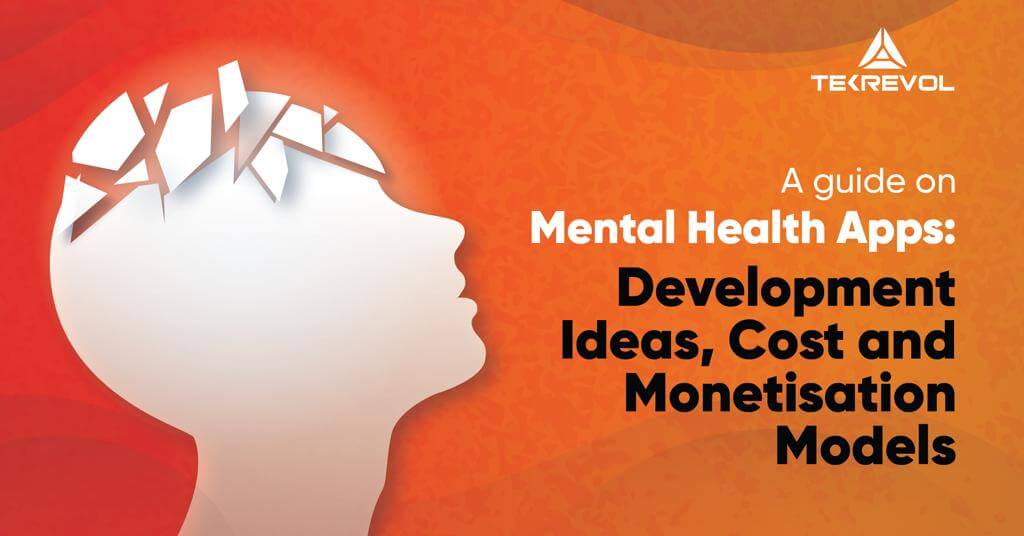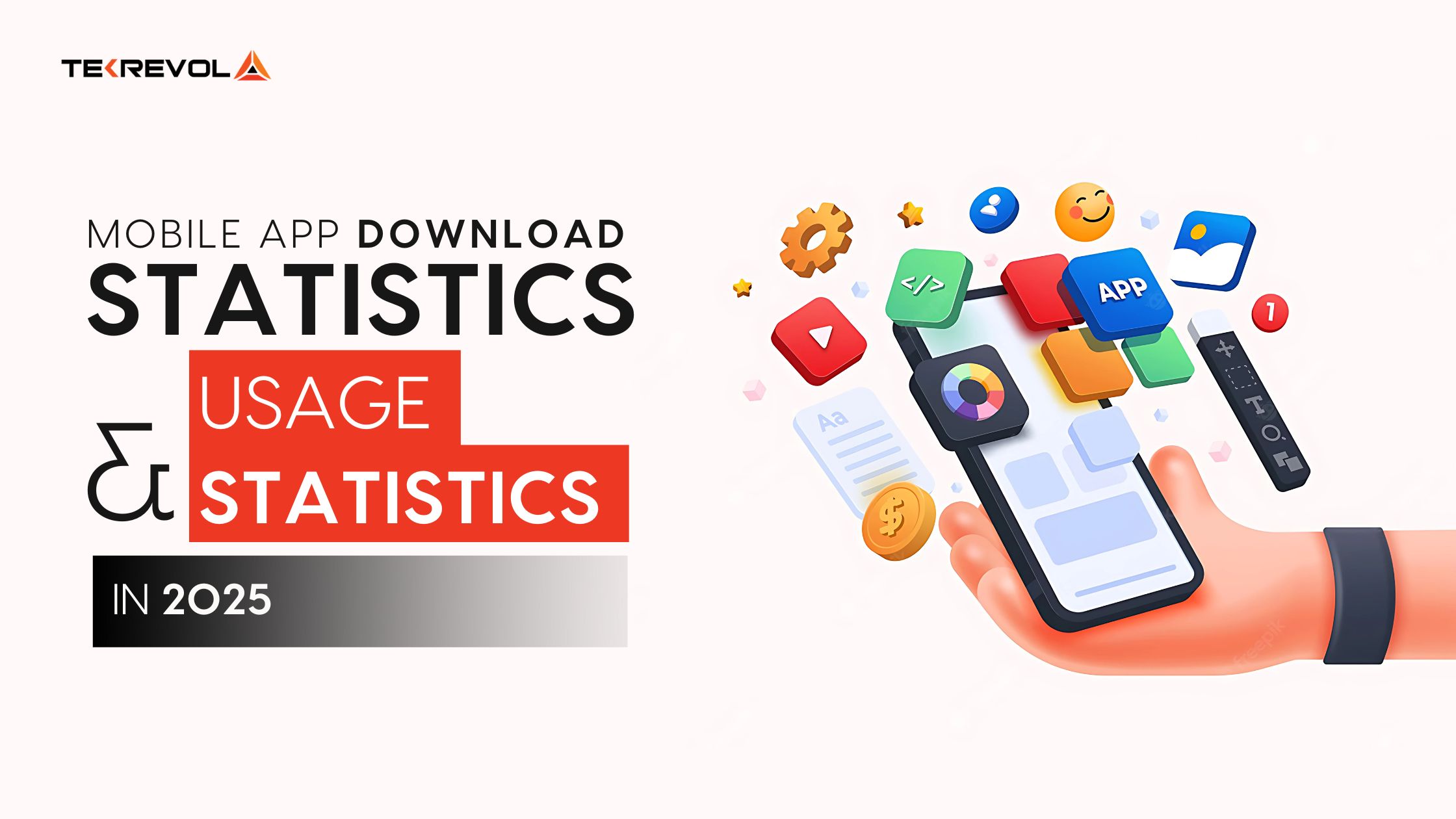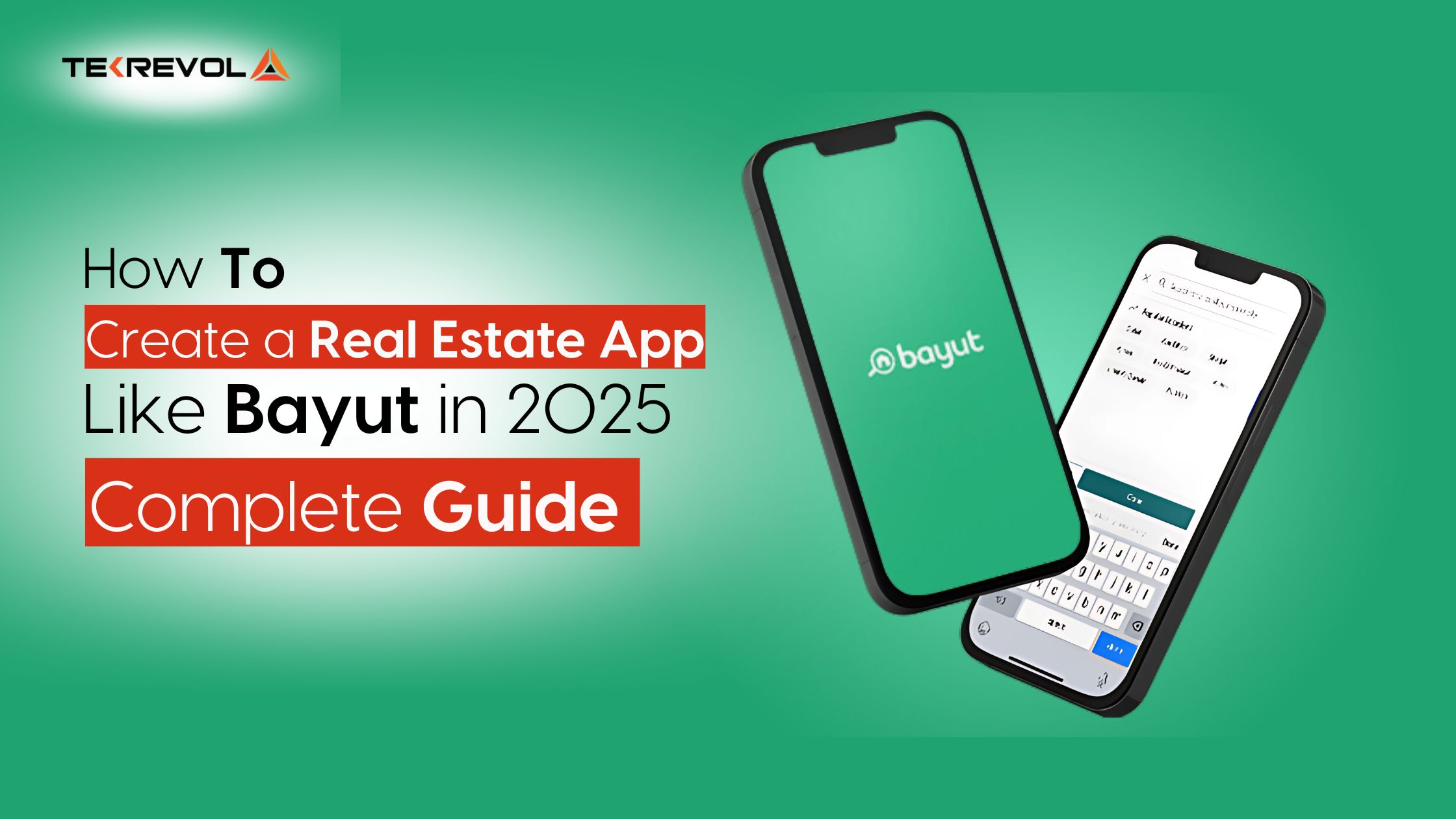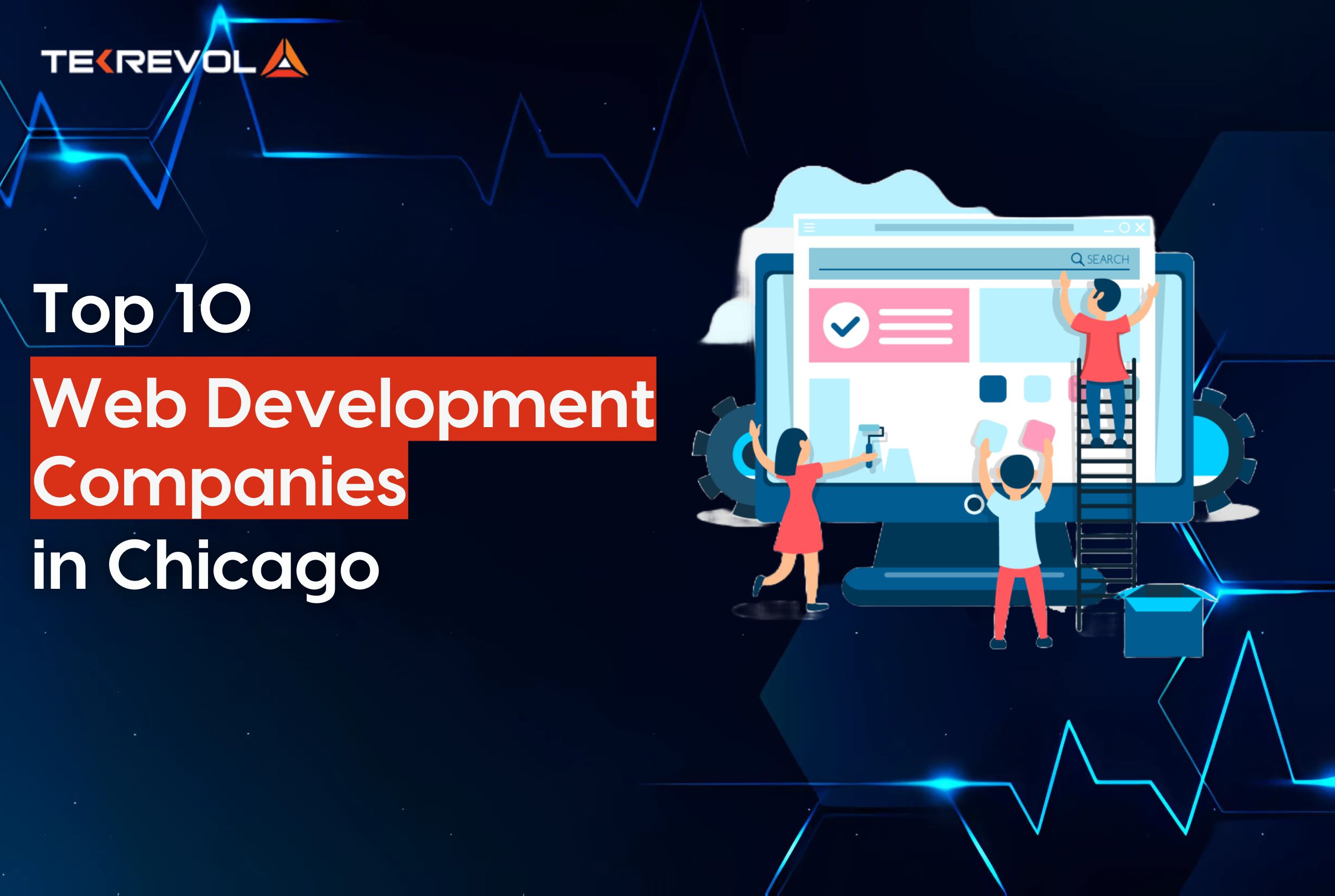Mental health is one of the most important parts of the overall healthcare sector, with a huge gap between care demand and supply. With the technological revolution in the healthcare sector, mental health apps have quite attempted to bridge this gap.
Considering this, if you are a healthcare professional, primarily from the mental health domain, developing a wellness app will not only be a lucrative venture, but one that is sustainable and scalable.
This guide covers everything from trending mental wellness apps for development inspiration to top development ideas, with a core focus on market potential of these apps, and a quick estimate of the cost of mental health app development.
- Interested in Mental Health App?
- Check the earning potential of your mental health app idea in a free call with our business analyst.
Market Potential of Mental Health Apps
Different reports from Statista suggest that:
- The global consumer spending on mental health apps was 270 million and 372 million US dollars in 2020 and 2021.
- This consumer spending on mental wellness apps is forecasted to reach 491 million US dollars by the end of 2022.
- Calm is the leading meditation app for most users, with total 40% of downloads in the whole segment. Headspace has the second highest share in the market. Other top mental health apps mostly cater to sleep improvement and insomnia.
- Calm had approximately 19 million USD from premium subscriptions, while Headspace had 86 million USD in 2021.
With the growing demand for mental health services, some medical tool has to fill the gap. And mobile apps are already at the forefront of this capitalization.

Mental Health App Ideas For 2024
Here are the top 11 mental health mobile app ideas for aspiring appreneurs and mental health professionals:
General mental wellness apps
- Mood tracker apps
- Mindfulness journals and diaries
- Mental health games
- Mental health app for kids and teenagers
- Mental health app for students and professionals
- Meditation apps for relaxation and better sleep
Mental health app for a specific condition like anxiety, depression, or stress
- On-demand mental health consultancy or appointment booking app
- Telemedicine and therapy apps for mental health conditions
- Mental wellness game development with relaxing puzzles, coloring and quizzes
- AI Chatbot companion for mental health patients
- Mental health app for nurses, teachers or social workers
- Looking for A Mental Health App?
- Tekrevol’s experienced developers can turn your mental wellness idea into a world-changing digital reality. Connect with an expert to develop a masterpiece app like Calm and Headspace.
How Much Does It Cost To Build A Mental Health App?
Mental health app development can cost between $40,000 to $75,000. You can also seek assistance from a trusted mobile app development agency that can provide more accurate cost estimations customized to your specific project requirements, features, platforms, and functionalities.
While following are quick cost estimates, the actual cost depends on the scope, features, and development effort required to build an app. Here is a detailed breakdown of the cost of mental health apps
- A basic mental health app costs $25,000.
- A mid-level app with 4 to 6 features costs $30,000.
- An on-demand mental health appointment booking app costs $50,000.
- An AI mental health chatbot can cost $55,000 to $80,000 depending on the data and its scope.
- A specific mental health app for ADHD or PTSD will cost $65,000 to $75,000.
Factors That Affect the Cost of Mental Health App Development
Here are top 7 factors that formulate the cost of mental health apps:
- App category, scope and features
- of development hours
- Development tools, technologies and APIs
- Process of development and scope of services
- Complexity of app’s user interface and user experience designs
- App security measures
- Side costs like hosting, patent, app marketing
How Long Does It Take To Build A Mental Health App?
A basic to mid-level mental wellness app takes 3 to 5 months in develop.

11 Best Mental Health Apps To Seek Inspiration From
1. Calm
Calm is the most popular, and the best mental health app in terms of user experience and scope. The primary goal of the app is to improve sleep, help users with mindfulness and meditation and enhance happy moods. The app has guided sessions and exercises for everyone including beginners to professionals to severe anxiety and depression patients.
Monetization Model of Calm
Calm’s basic version is free to download and use. Plus, it earns via in-app purchases and has some premium features. the average rating is 4.8 on App store, 4.2 on Google Play. Users can take 7-day free trials for premium features.
2. Sanvello
This is a one=stop anxiety relief app that caters to panic, stress and depression as well. It’s UX suggests that it is a complete, feel-better toolkit with different features for therapy, self-care, mood-tracking, coaching and community support. That’s the reason around 40 million people in the United States use Sanvello.
What Tekrevol’s UX strategists like the most about Sanvello is its organizational-level popularity. Some companies have added Sanvello to their healthcare policies and insurance plans. This benefit is currently limited to the States but we’ll soon find this available in a lot of other regions.
Monetization Model of Sanvello
The basic version of Sanvello is free. Users can upgrade to premium version for advance features. currently, it has an average rating of 4.5 on Google Play and 4.8 on App store. its main earnings come from the premium version where users can match with therapists, seek paid consultancy and book appointments.
3. Headspace
Headspace is somewhat similar to Calm, but it is a premium application. It is a general mental wellness app for a huge target audience ranging from students to professionals to stay at home moms. The app basically works on 5 major goals: sleep, meditation, stress control, mindfulness and self-care. Headspace is turning into a huge online community that’s ready to support members with free forum advice and articles.
Monetization Model of Headspace
Headspace is a premium application and currently has released 2 pricing plans. First is annual that costs $69.99/year and comes with a 14 days trial. Second is monthly that comes at $12.99/month and comes with a 7-day trial. The former definitely offers more savings.
4. Wysa
Wysa is a mental wellness companion who works as a helper during phases of anxiety, stress, panic and depression. Because it’s an AI chatbot by technical nature, it replicates how chatbots work and assists like a mindfulness coach as well as happiness buddy as and when human users need. Wysa helps with sleep and anger issues and books therapy sessions with coaches upon user requests.
Monetization Model of Wysa
Wysa earns through a freemium model. Its basic version is free to download and use for all users. however, the premium version, which gives access to scientific tools and coach matching, costs a whopping $99.99 per month.
While it looks pricey on the surface for beginners, Wysa is doing really well in terms of finances because it has a strongly defined target audience and app scope. It is for introverts who are not comfortable around others and need to converse to let their true feelings out. Currently, it has a 4.8 average rating on Google Play and 4.9 on App store, which is evidential of the strong user experience Wysa is providing.
5. Mindshift CBT
If you are a professional in mental health services, a care provider or a community supporter who came up with the idea of launching a mental health app, you must be aware about cognitive behavior therapy. Mindshift CBT works exactly on these principles. It is a free, feature-packed app that allows users to track their mood, complete mindfulness challenges, meditate and then monitor their progress.
Monetization Model of MindShift CBT
The Mindshift CBT app is free to download and use and earns through in-app purchases. The app has 4.0 rating on Google Play and 4.3 on App store.
6. Anxiety Relief Hypnosis
This is another interesting mental health app to seek development inspiration from. It is a native Android application and uses audios and music sounds to relieve users’ anger issues, overwhelming conditions, OCD, panic attacks and especially symptoms of PTSD (Post Traumatic StressDisorder).
Monetization Model of Anxiety Relief Hypnosis
Anxiety Relief Hypnosis follows an Android app development architecture with some streaming features of music apps. So, we assume the development was more economic than other apps on this list. Plus, it is free to download and use with default settings. The main app earnings come from in-app purchases that help users customize the settings in the app.
7. Reflectly: Diary, Gratitude Journal & Mood Tracker
This is a light-weight journaling app, slightly different in scope and interface to all the other apps discussed earlier in this inspiration list. The app follows artificial intelligence and machine learning applications and sends out personalized insights and recommendations in forms of daily motivation and QAs. The official listing suggests Reflectly is the world’s first intelligent journal.
Monetization model of Reflectly
Reflectly is free to download and use. It earns through in-app purchases. With an average rating of 4.2 on Google Play and 4.6 on App store, the app seems to be doing really well with its minimalist designs and intuitive navigation.
While these cater to a general audience aiming for mental wellbeing, here are top applications dedicated to specific mental conditions and provision of care services.
8. eMoods
It is a mental wellness app for people with bipolar conditions.
9. Todoist
it is an organization and productivity app for ADHD.
10. PTSD Coach
it is a mental health app to help track and relieve symptoms of Post Traumatic Stress Disorder.
11. Shine
it is a self-improvement and community support app for BIPOC – Black and Indigenous People of Color.
Factors to Consider in Mental Health App Development
Placed at the backburner for years now, mental health concerns, their awareness and open discussions have actually gained traction. That being said, investing your energy and financial resources in mental health app development will definitely be rewarding, but you’ll have to consider a number of factors before you can start this exciting venture.
Target audience for mental health apps
Firstly, you’ll have to closely understand, and decide the target audience for your mental health app. this will help you decide the scope of the app – on which depend your user experience, features, development hours, development effort and cost, and monetization model.
For logical understanding, here are 2 different mental health app categories you can consider:
- General mental wellness apps
If you niche down your app to this category, you can launch a light-weight free mental health app that can also earn through sponsored apps. The scope of this app can be big or small and have 3 to 5 user-centric features.
The target audience for these apps won’t be strict or sensitive as compared to another category. You can choose from different branding and interface styles and shape the user experience depending on the age or emotional background of your target audience.
- Mental health app for specific conditions like anxiety, depression, bipolar disease etc.
If you create an app in this category, you’ll have to create a detailed development strategy and take care of different ethical and moral concerns. Firstly, you’ll have to research your target audience really well, their likes and dislikes, demographics, language preferences, their symptoms and solutions they are seeking.
Tek’s UX strategists suggest keeping the UI and UX very minimal and only add features that really help – or they may end up overwhelming your users. The ideal monetization strategy for these apps should be either free with in-app purchases, but no advertisements. Or, you can launch a premium application like Headspace that comes with a free trial.
User Data and App Security
Most free applications earn through sponsored advertisements. and they do so by analyzing the browsing patterns and search histories of their users. This is okay for most apps, like fun camera apps and offline android games – but when it comes to mental health, or any general-purpose healthcare app development, the concerns get entirely different.

Target users of healthcare apps, especially for mental health apps are quite concerned about their apps saving the type and quantity of their personal, professional and medical information. This is highly important if your app:
- Is a premium one and seeks credit card information for buying plans
- Has in-app messaging features
- Collects address and location to match with therapists
That’s why, if you plan to launch a mental wellness app, we suggest you place high emphasis on data retention and security. Plus, ensure that your developer and the tester take special measures while coding the app to maintain app security. For this, your mental health app developer will have to perform functional, unit, data and instrument testing and will have to integrate end to end encryption.
Push Notifications
Push notifications keep you connected to your target audience. More often than not, these notifications, in fact reminders, are the reasons some users would come to browse the app every day. But when you add push notifications to your mental health app, you need to be considerate about your target audience and their desired user experience. Too many in a day can overwhelm, while one or two reminders and story shots can help.
HIPAA Compliance
You’ll have to acquire a HIPAA compliance certificate if your mental health app will collect patients’ medical information.
Wrapping Up…
So, this one comprehensive guide on mental health app development concludes here. At this stage, you must have a rough idea of the type of mental health app you want to develop, its target audience and a cost estimate for app development budget. Tekrevol’s business analysts and project managers can help you move forward and launch an app that will serve its end users with high profile experience.
- Develop A Mental Health App
- Skip all the hassle and connect with a technical expert to learn when you can complete programming and launch your mental health app on the Google Play and App stores. Get in touch with us for a free 30 minutes growth consultancy session.

 3025 Views
3025 Views March 23, 2022
March 23, 2022






